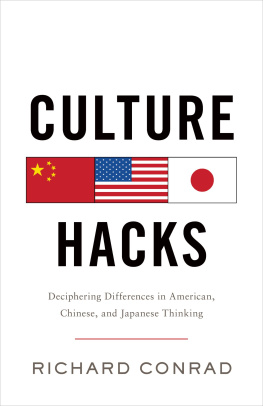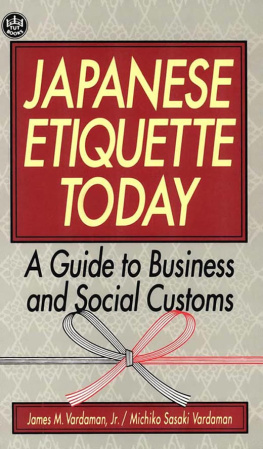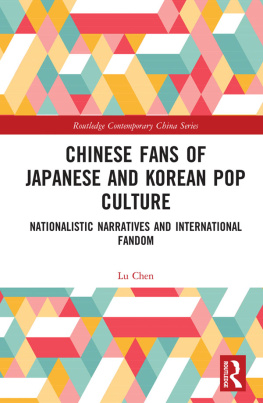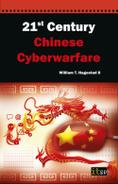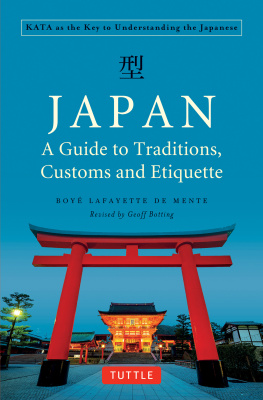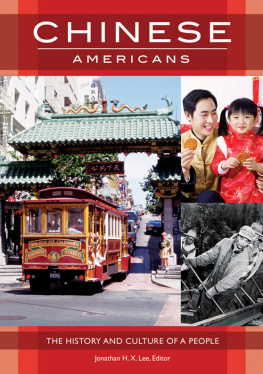All rights reserved.
Know yourself, know your enemy, and you will not lose in one hundred battles.
Prologue
An incident in a small neighborhood grocery store in Japan changed the way I think about the world.
After unloading my basket of groceries, the cashier said I owed 6,543 yen. I was a bit slow counting the unfamiliar coins but was pleased with myself when I had counted out 6,542 yen. I was one yen short. The cashier counted it two times and then stared at me. I smiled back. She kept staring. I looked around the register for a dish of pennies, like wed have in the US, but no luck. She kept staring. This wasnt a national chain, just a local mom and pop store. Surely, I thought, they wouldnt turn down a $50 purchase over less than a penny.
I finally realized we were stuck. I grabbed my money and groceries and got out of line. To the perfectionist and literal Japanese mind, one penny short was the same as $50 short. This was my first experience realizing that people from different cultures could think and view the world so differently.
When I was in college, it appeared as ifat least in economic termsJapan was taking over the world. Americans didnt seem to understand Japan, so I moved there to learn the language and culture. While in Taiwan a few years later, I had an intuition that China could replicate Japans success. I learned Mandarin and became a local student at a top Chinese university, where I earned a masters degree in economics. For the past sixteen years, Ive worked as an equity analyst researching and investing in Chinese and Japanese companies.
Over the past twenty - five years living, studying, and working in Asia, Ive developed a framework to help understand the different ways Americans, Chinese, and Japanese think about and interpret the world. My experience was that most cultural misunderstandings and miscommunications were due to fundamental differences in the way we think. I title the framework Linear, Lateral, Intuitive because this phrase reminds me that Americans tend to think linearly, Chinese laterally, and Japanese intuitively. This book shows how and why each group thinks differently, how this impacts their societies and cultures, how to best communicate to bridge the cultural divide, and how this difference in thinking shapes each countrys future economic outlooks. My goal was to write the book I wish Id read when I first moved to Asia.
My understanding of different thinking styles evolved when I was living in China and visited Tibet. Lhasa has an undeniable and palpable energy unlike any other city. It was very holy. Im not sure how else to describe it. Lhasa presented a stark contrast to my experience in eastern China, where life was extremely pragmatic and just about the opposite of holy.
Tibet couldnt have been more different. From my perspective, Tibet was a place where people appeared to prioritize religious devotion completely. Folks were extremely poor and seemed completely detached from life. Their clothes appeared to be little more than old rags, and they would walk around all day, every day, chanting prayers and spinning small prayer wheels. Some Tibetans would prostrate themselves with every prayer. They would go face down no matter how dirty the ground, stand up again, and repeat, thus moving forward by a body length. It seemed madness to my American eyes. Yet, despite their material poverty, the Tibetan people I saw, to my wonderment, seemed no more or less happy to me than the average American.
I had a revelation while staring at a wrinkled old lady with long matted grey hair in a thick black wool dress that looked as though she had worn it every day for fifty years. She was spinning her prayer wheel over and over, repeating the standard Tibetan prayer of Om Mani Padme Hum. And then it hit me: in the West, we believe that time began with the big bang 13.8 billion years ago (or that God created heaven and Earth and said let there be light) and that time has moved forward ever since and will continue to move forward in a linear fashion as the universe ages. Having these set points allows Westerners to have fixed beliefs in absolute truths. Our linear logic came out of this belief in absolute truth and linear time.
Time for Asians, however, from India to Japan, is different. It is, always and everywhere, circular. Of course, Westerners view hours, minutes, and seconds on circular clocks and recognize cyclical seasons: winter, spring, summer, and fall. But when counting by years, we believe in a set beginning with time marching forward in a straight line. The Asian belief is that all time is circular. Universes come into and out of existence infinitely. Everything moves in a circular path with no set points on which to anchor.
With this perspective, Asians tend to view right and wrong, good and bad, as relative and not absolute. As the great Zen warrior Obi - Wan Kenobi said in Return of the Jedi , Luke, youre going to find that many of the truths we cling to depend greatly on our own point of view. In my youth, I knew in my heart that Americans were good because we were democratic and anyone that was a communist was bad. This was a fixed belief I held with great faith. The Asian view on these absolute truths, however, would be that it depends.
The German Chancellor Helmut Kohl tells a story about a conversation he had with Deng Xiaoping, the great modernizer of China. Helmut said, If you take the facts into consideration, you are not really honest people. You maintain that you are communists, but in fact, you are much more Confucianist. Dengs pondered response was, So what? In my experience, Chinese thinking eschews fixed truths and is much more lateral in its reasoning. Linear reasoning would expect a self - proclaimed communist to follow a communist system for politics and economics. But Dengs response, using lateral logic, was that the adoption of communism would not absolutely lead to a fully communist outcome. His idea of communism was flexible and could easily also include Confucianism and even capitalism (or market economics as he called it) even though this would appear contradictory to a linear logic thinker.
Differences in linear, lateral, and intuitive thinking can lead to unintended confusion, miscommunication, and misunderstanding. Constructive relationships among America, China, and Japan are only growing in importance in the twenty - first century, and it is vital that we work together with clarity. My hope is that this book helps us to all understand and communicate with each other better.
Lee Kuan Yew, One Mans View of the World (Singapore: Straits Time Press, 2013), 322.

